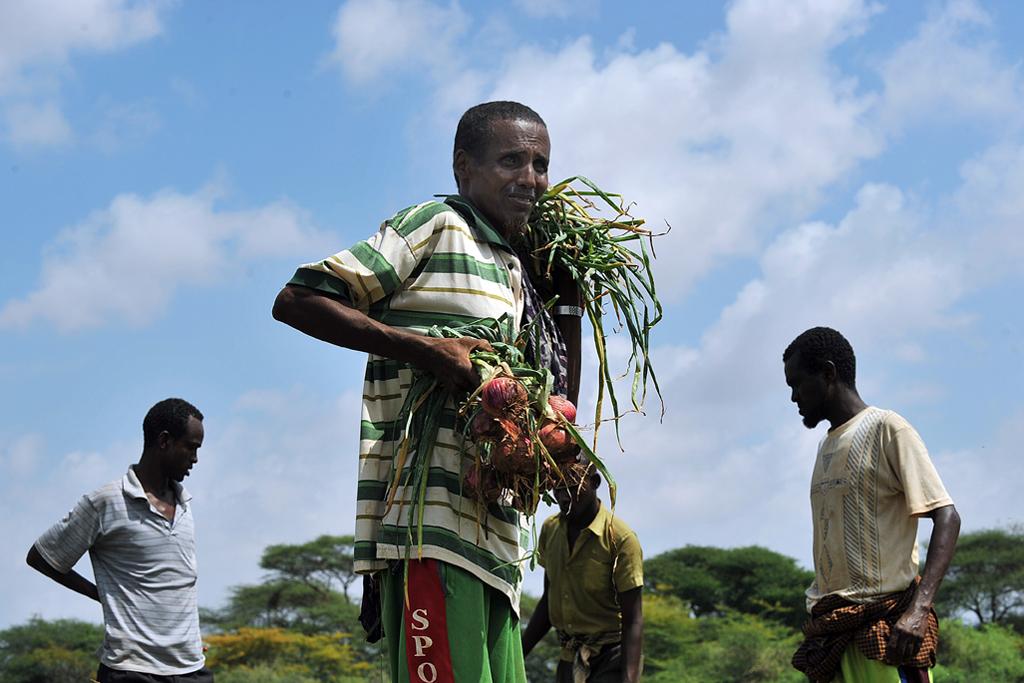Southern Africa may face higher food prices
A Somali farmer holds his harvest of bulb-onions at an irrigation scheme near Dollow in central Somalia, on November 21, 2011. AFP PHOTO/Tony KARUMBA. (Photo credit should read TONY KARUMBA/AFP/Getty Images)
Lower than expected grain harvests may raise food prices in southern Africa, while East Africa continues to suffer from a food crisis, according to Reuters. The rains in Zambia have delayed the planting of maize crop while South Africa fears it may have exported too much of its grain.
Bumper harvests in Zambia and Malawi helped keep food inflation under control in recent years while East Africa dealt with high levels of oil and food inflation, Reuters said.
More from GlobalPost: Johannesburg university stampede kills one
Razia Khan, head of Africa research at Standard Chartered said, “Zambia …had seen record grain harvests. While the new government will devote even more attention to boosting agriculture, it may not be sufficient to hold food prices – and inflation – down, if the rains are less favorable.”
The food crisis in East Africa, a result of drought, has affected nearly 13 million people living in parts of Kenya, Ethiopia, Somalia and South Sudan. The United Nations has appealed for $1.5 billion in aid, naming this the worst drought to hit the area in 60 years, according to the Guardian.
More from GlobalPost: Rains come to East Africa
The recently appointed head of the UN's Food and Agriculture Organization (FAO), Jose Graziano da Silva, said in his first press conference, "Africa will be a priority during my mandate. I will travel to the continent at the end of January to participate in the African Union Summit and visit the Horn of Africa."
The aid agency Oxfam warned in Dec. 2011 that west Africa will also be facing a food crisis, especially in the countries Mauritania, Niger, Burkina Faso, Mali and Chad, Voice of America reported. A combination of a bad rainy season, fewer crops and rising food prices has created an atmosphere which threatens food shortages.
More from GlobalPost: Rice 2.0: In Africa, rice is complicated
Rising food prices are already having a negative impact on inflation in Zambia, and inflation in drought hit Kenya peaked at 19.7 percent. “Higher inflation in South Africa typically triggers some spillover into inflation in the rest of its regional trading partners," said Khan to Reuters.
The story you just read is accessible and free to all because thousands of listeners and readers contribute to our nonprofit newsroom. We go deep to bring you the human-centered international reporting that you know you can trust. To do this work and to do it well, we rely on the support of our listeners. If you appreciated our coverage this year, if there was a story that made you pause or a song that moved you, would you consider making a gift to sustain our work through 2024 and beyond?
